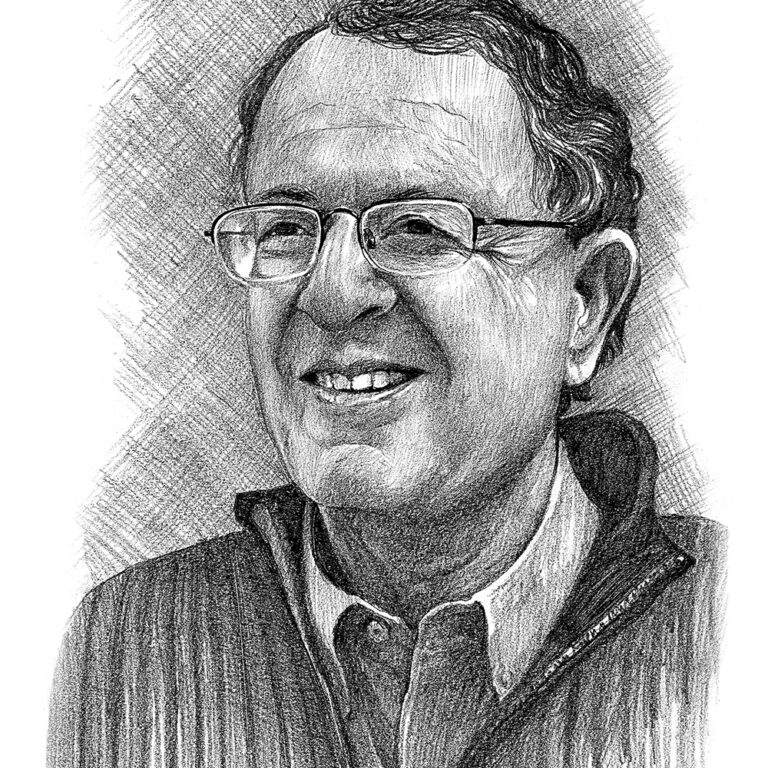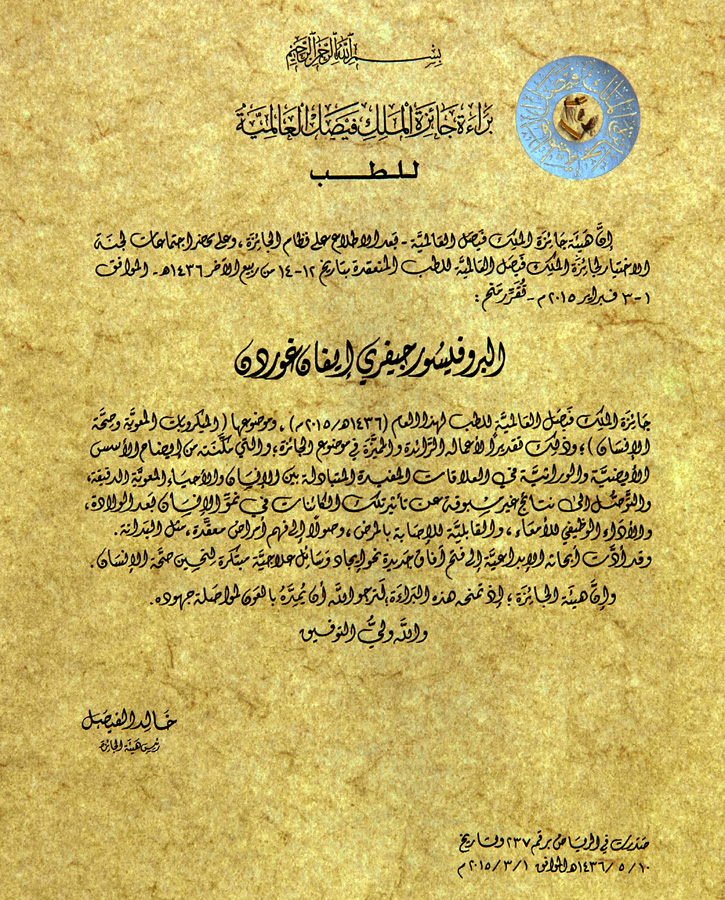

Professor Jeffrey Ivan Gordon
King Faisal Prize in Medicine 2015 Laureate
Topic: "Intestinal Microflora and Human Health"
There is an African proverb saying: if you want to travel fast, go alone; if you want to travel far, go together

Jeffery Gordon received his B.A. in Biology (Magna cum Laude) from Oberlin College in Ohio in 1969. Over the next four years, he pursued his medical training at the University of Chicago and obtained an M.D. with honors in 1973. He served for two years as an intern and a junior assistant resident in Medicine at Barnes Hospital, St Louis, MO. In 1975, he was appointed a Research Associate at the Laboratory of Biochemistry at the National Cancer Institute of the National Institutes of Health. In 1978, he returned to Barnes Hospital as a Senior Assistant Resident then a Chief Medical Resident at Washington University Medical Service. In 1981, he completed a fellowship in medicine (Gastroenterology) at Washington University School of Medicine and rose through academic ranks at Washington
University in St. Louis, from an Assistant Professor of Medicine in 1981 to a full professor of Medicine, Biochemistry, and Molecular Biophysics in 1987. He became an Alumni Endowed Professor in 1991, and the Head of the Department of Molecular Biology and Pharmacology in 1991-2004.
Professor Gordon is a pioneer of interdisciplinary studies of the human microbiome, especially the intestines, and is one of the founders of a new research area, which analyzes the influence of the intestinal microbiota on postnatal development, physiology, and susceptibility to illness. He investigates the metabolic processes and their genetic bases of mutually beneficial relationships between host and microorganisms in the human gut. He developed new experimental and theoretical approaches to investigate the composition and dynamics of the human gut microbes with the aim of better understanding the pathogenesis of complex diseases and developing novel microbiome-directed therapeutics to improve health
Professor Gordon has authored and co-authored more than 440 publications, including several milestone papers in his field of specialization. His outstanding contributions have gained him wide recognition by scientific and medical communities. He is an elected member of the US National Academy of Sciences, the American Academy of Arts and Sciences, and the Institute of Medicine of the National Academies. He is also a Fellow of the American Academy of Microbiology and a Fellow of the American Association for the Advancement of Science. His honors also include an honorary Doctorate Degree from the University of Gothenburg as well as numerous other awards including, the Janssen/AGA Sustained Achievement Award in Digestive Sciences, the Selman A. Waksman Award in Microbiology, the Robert Koch Award and the Passano Award.
This biography was written in the year the prize was awarded.

